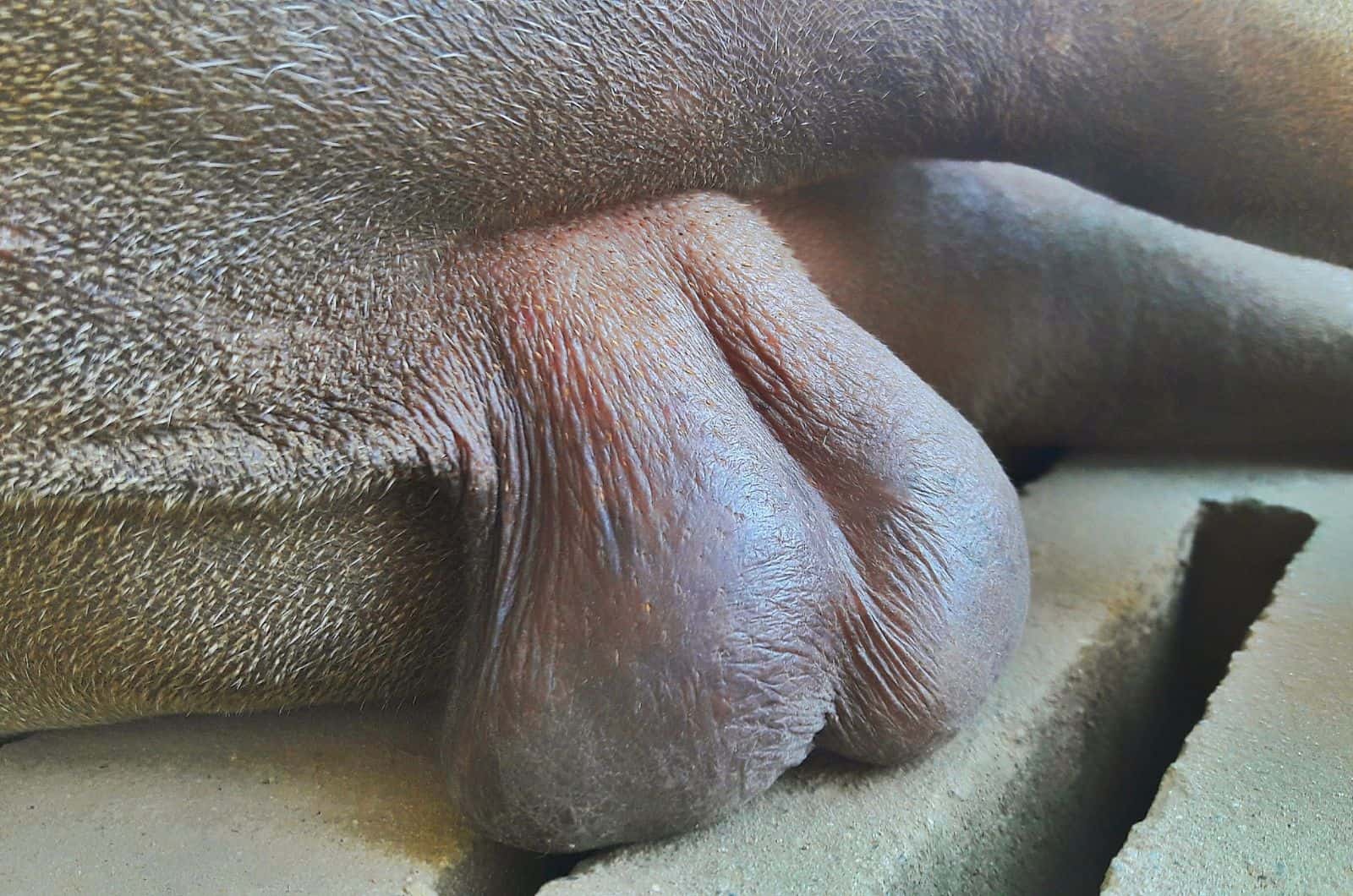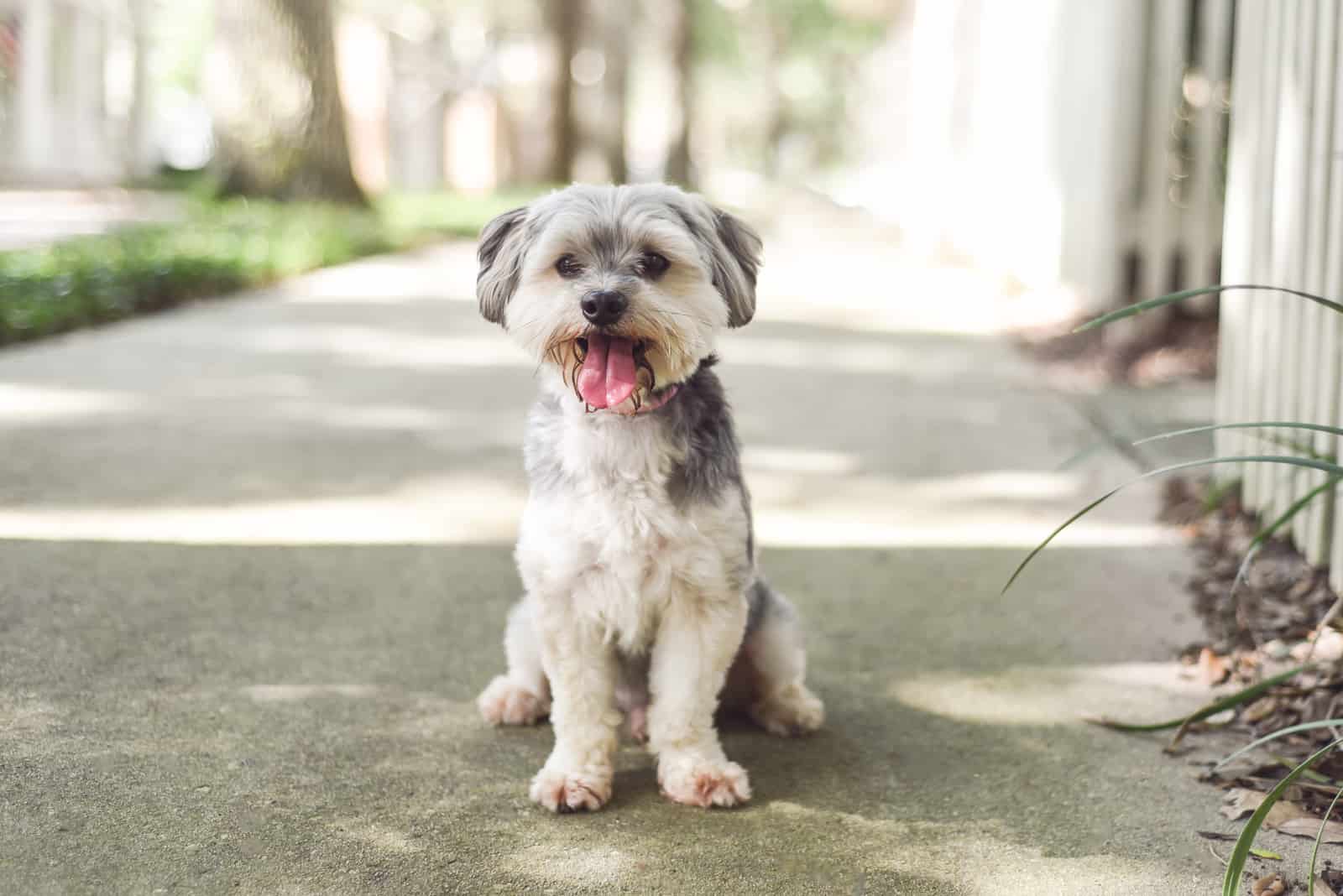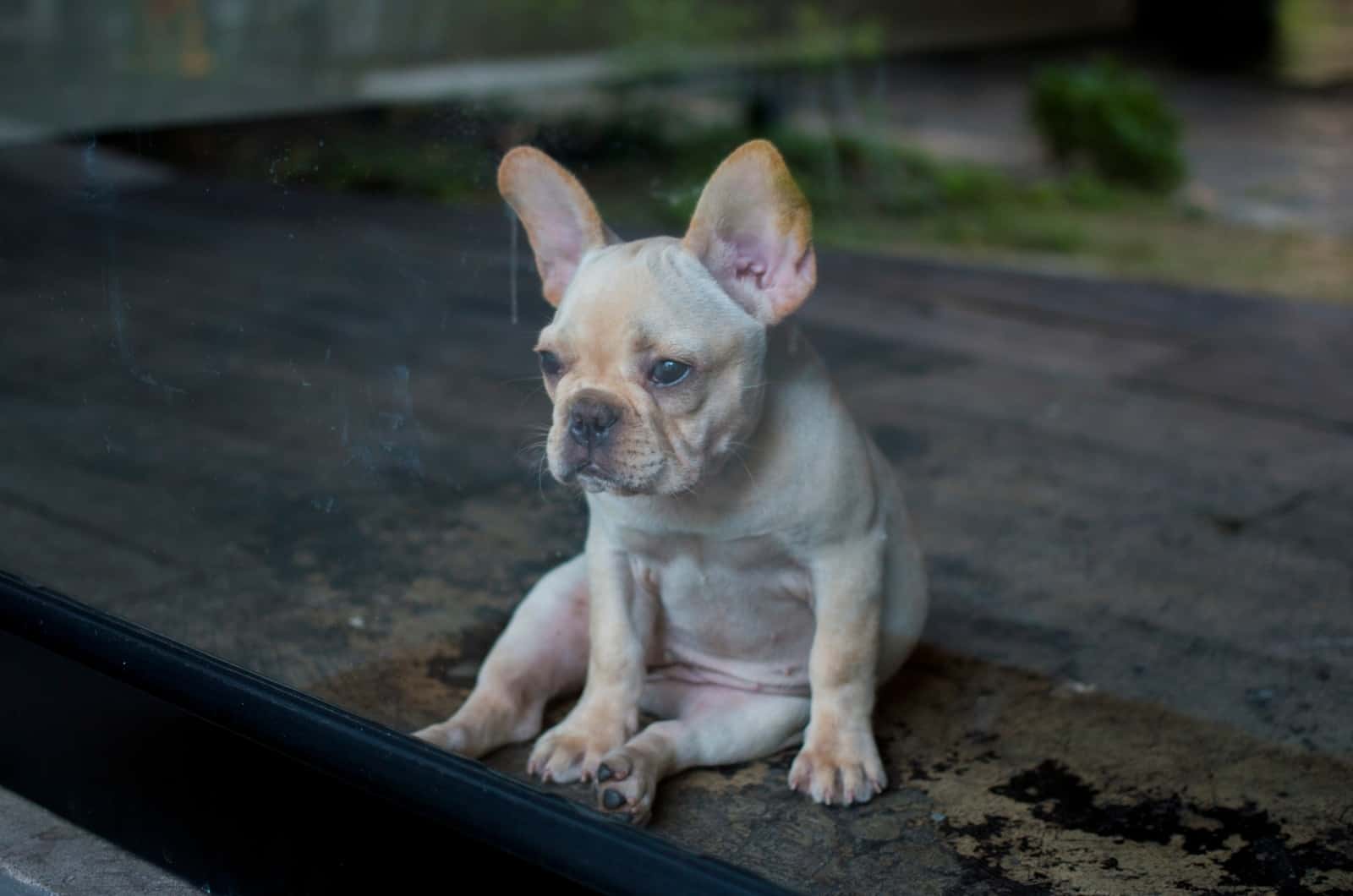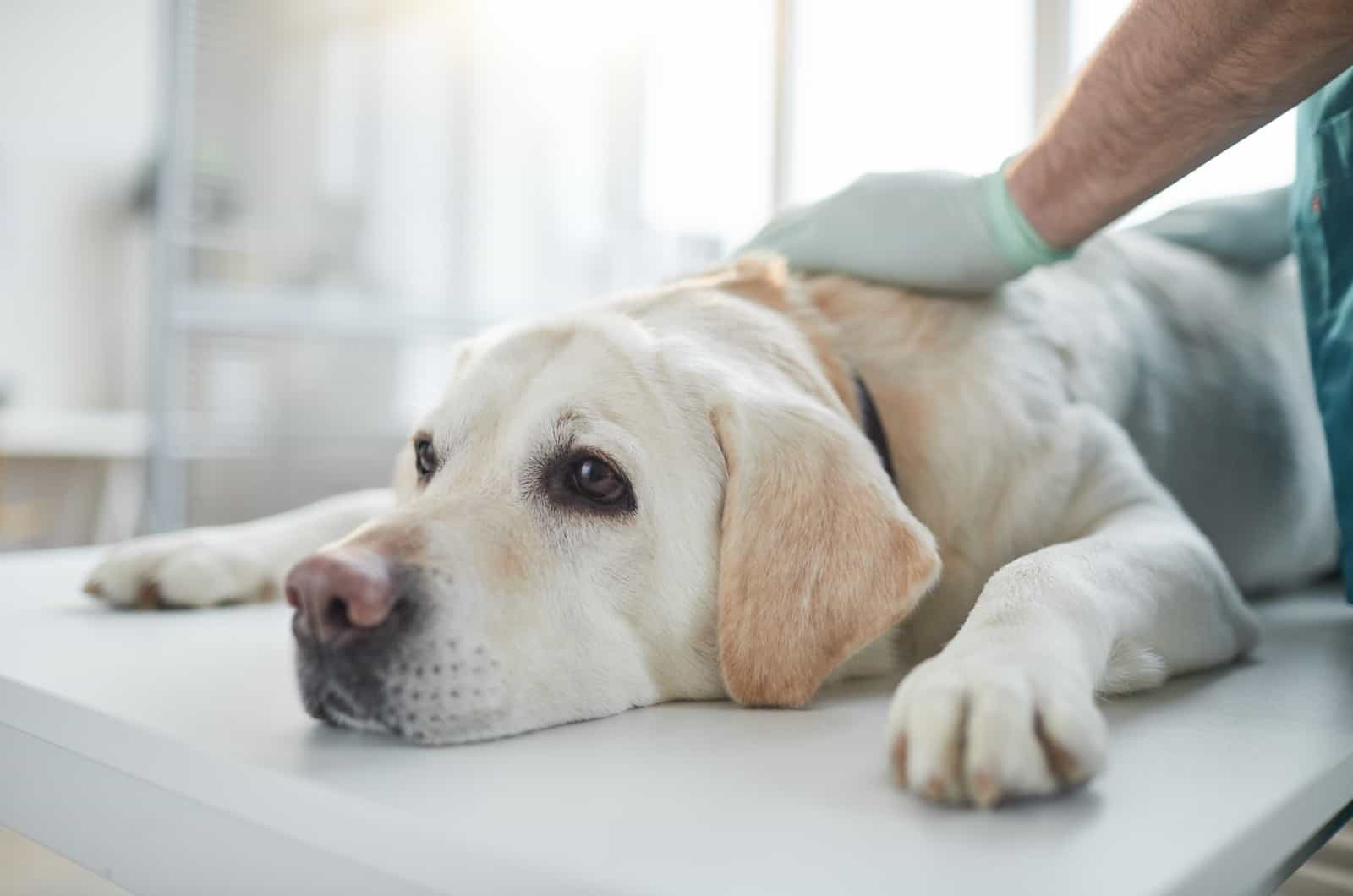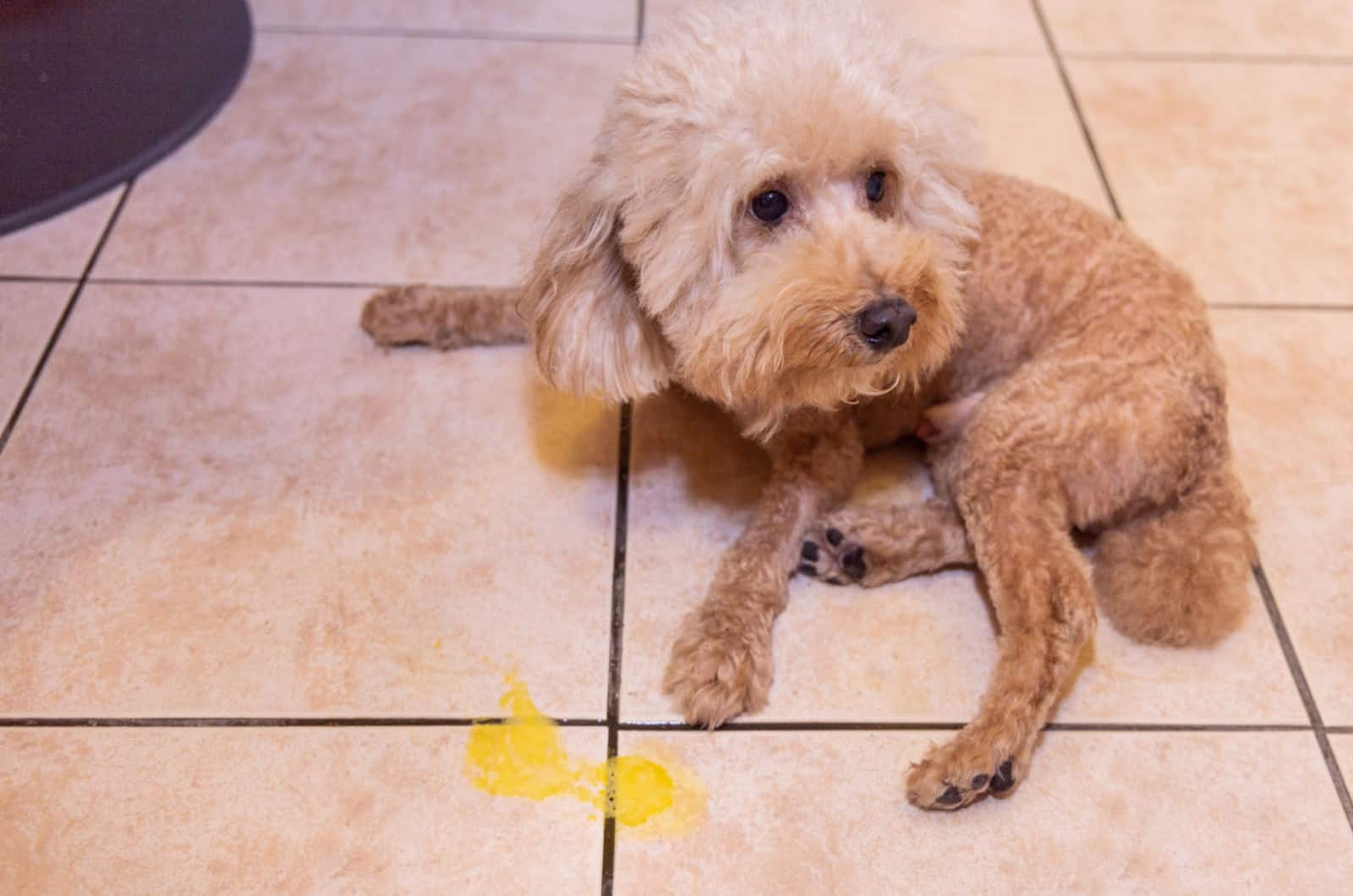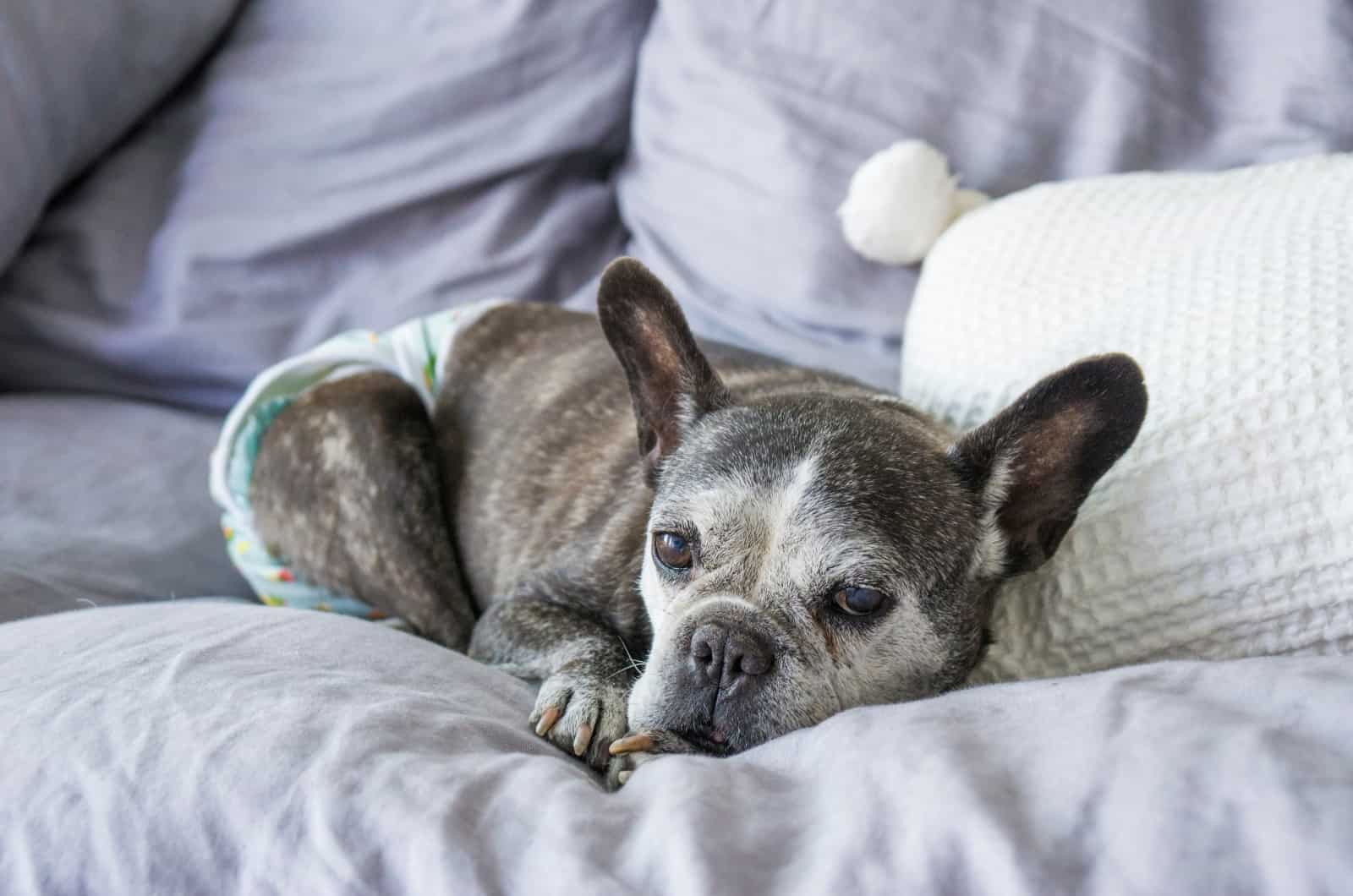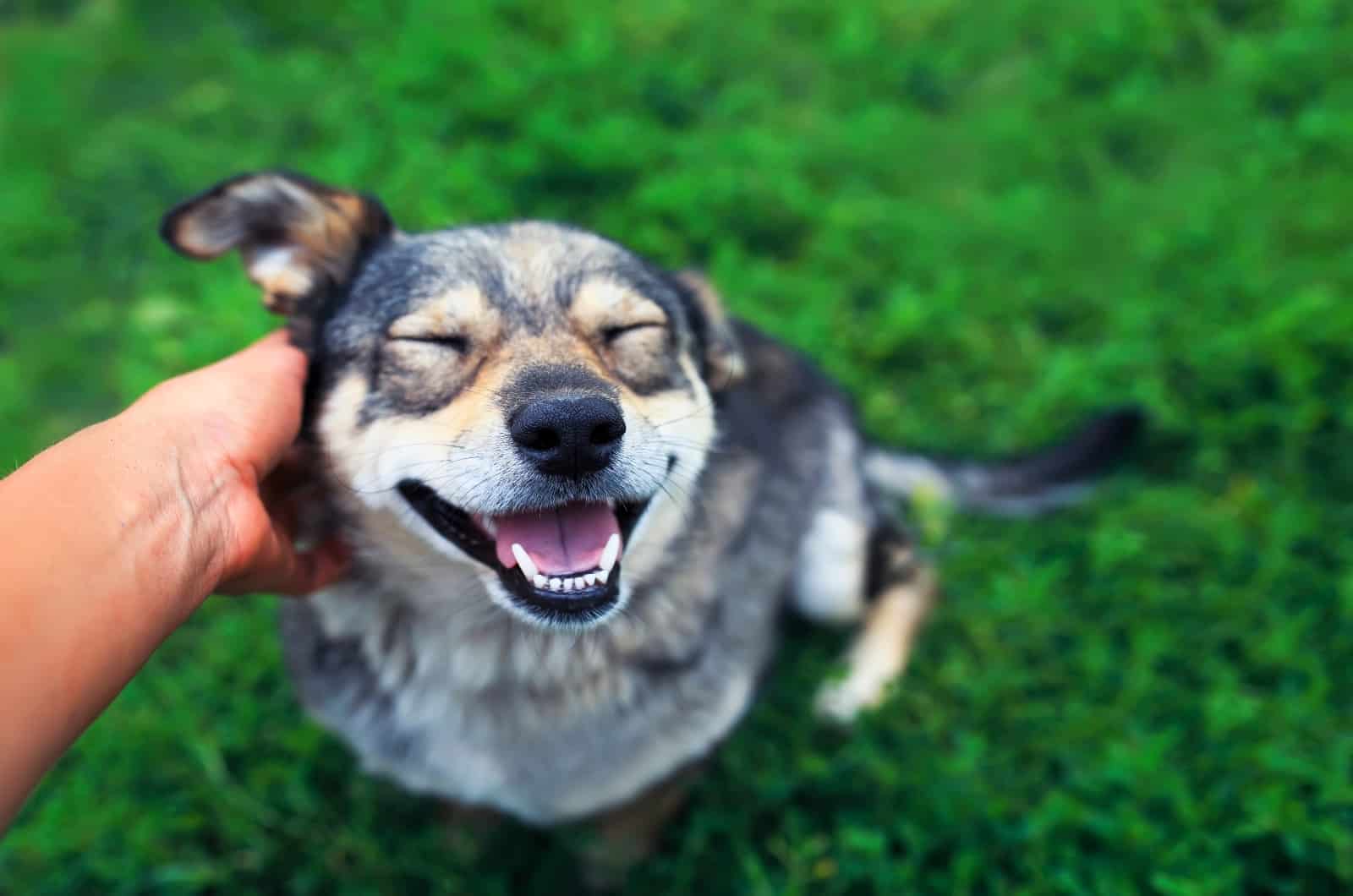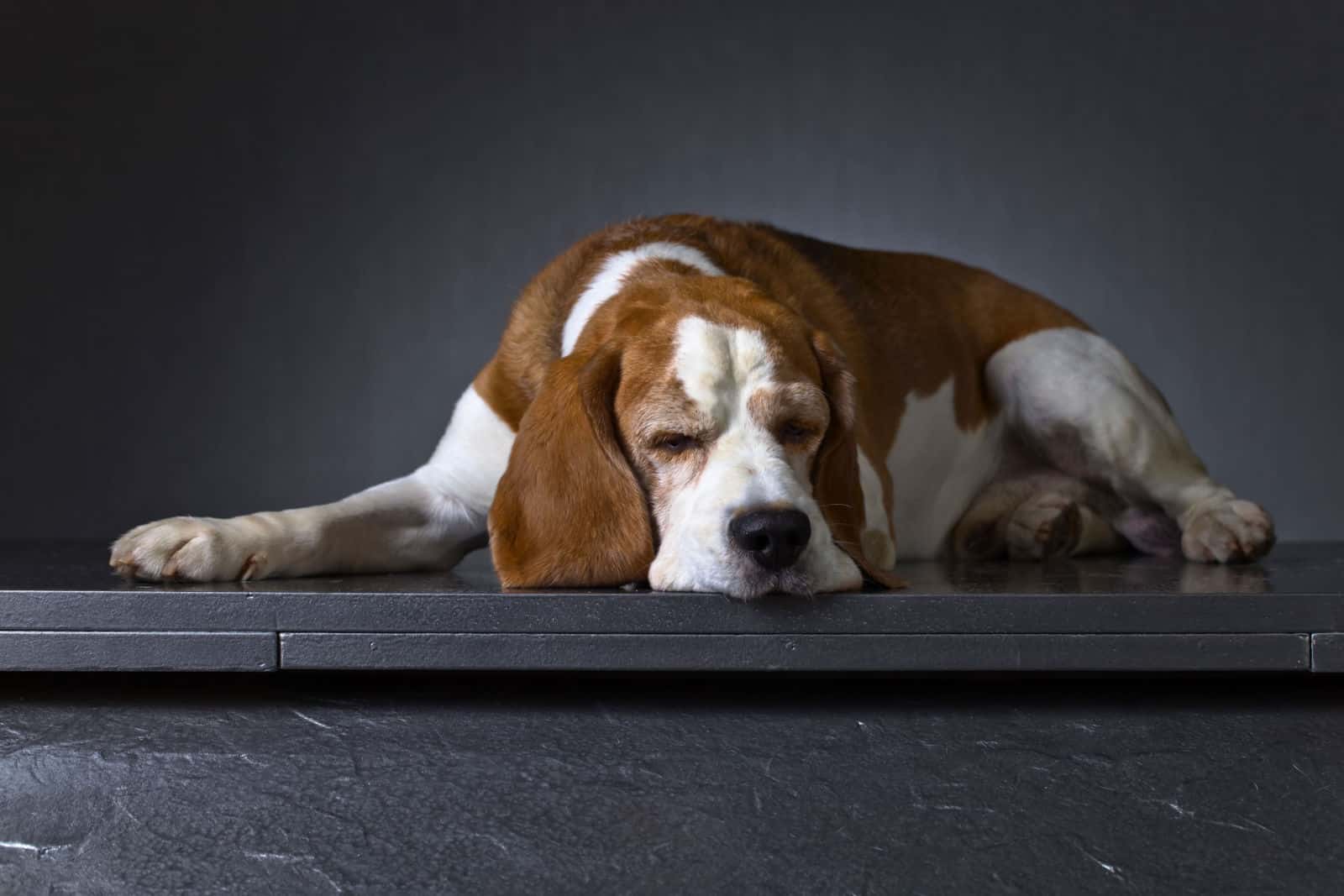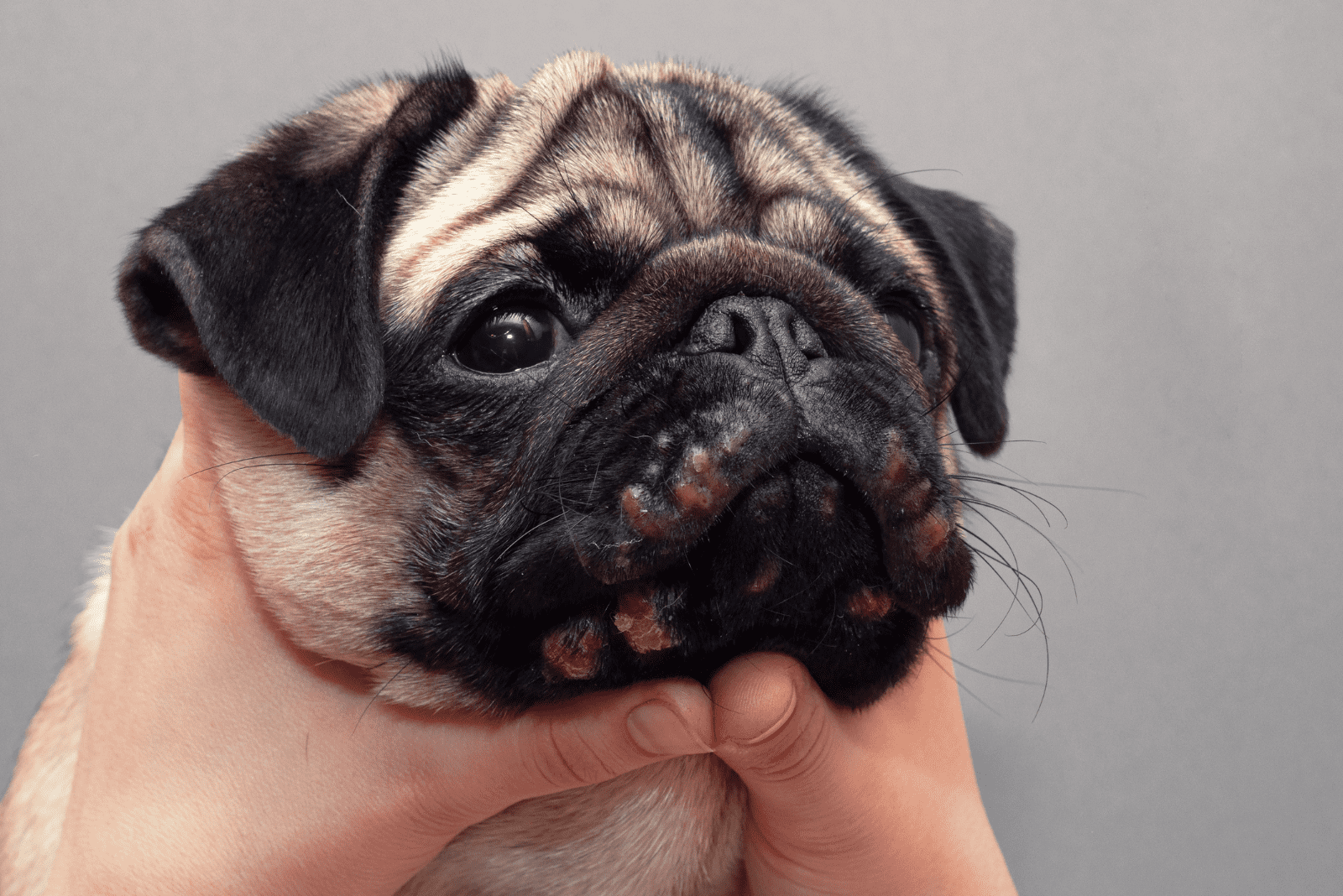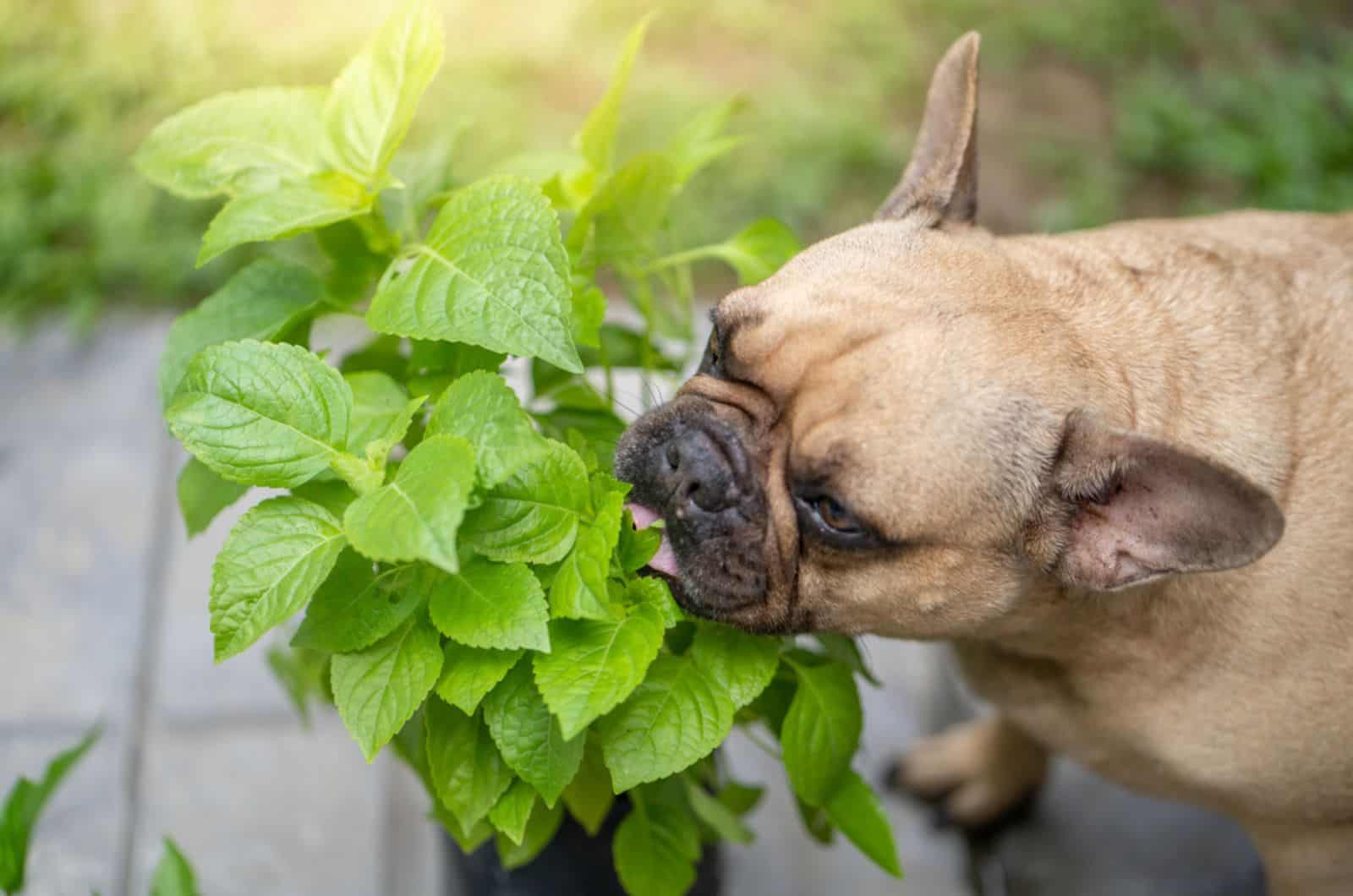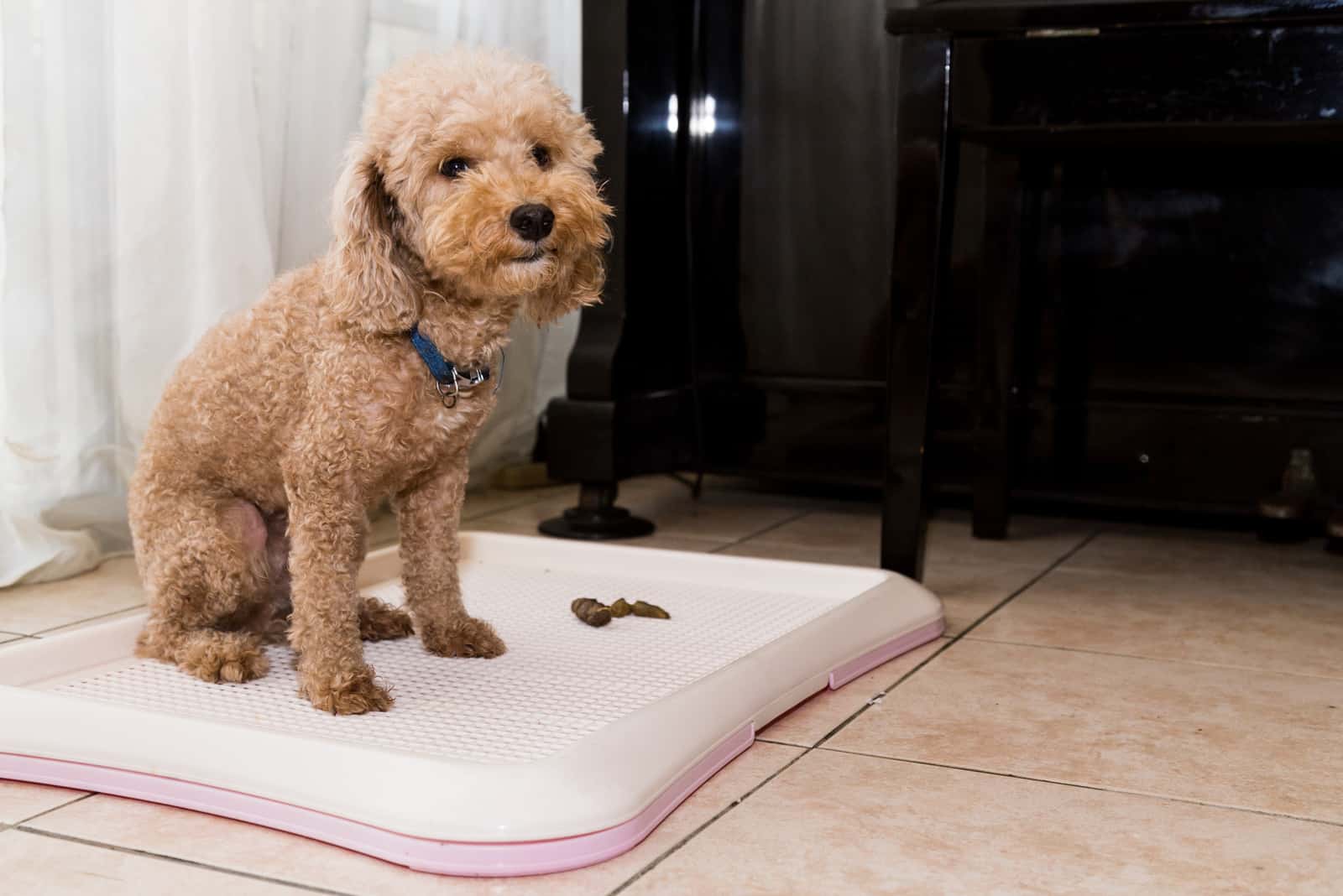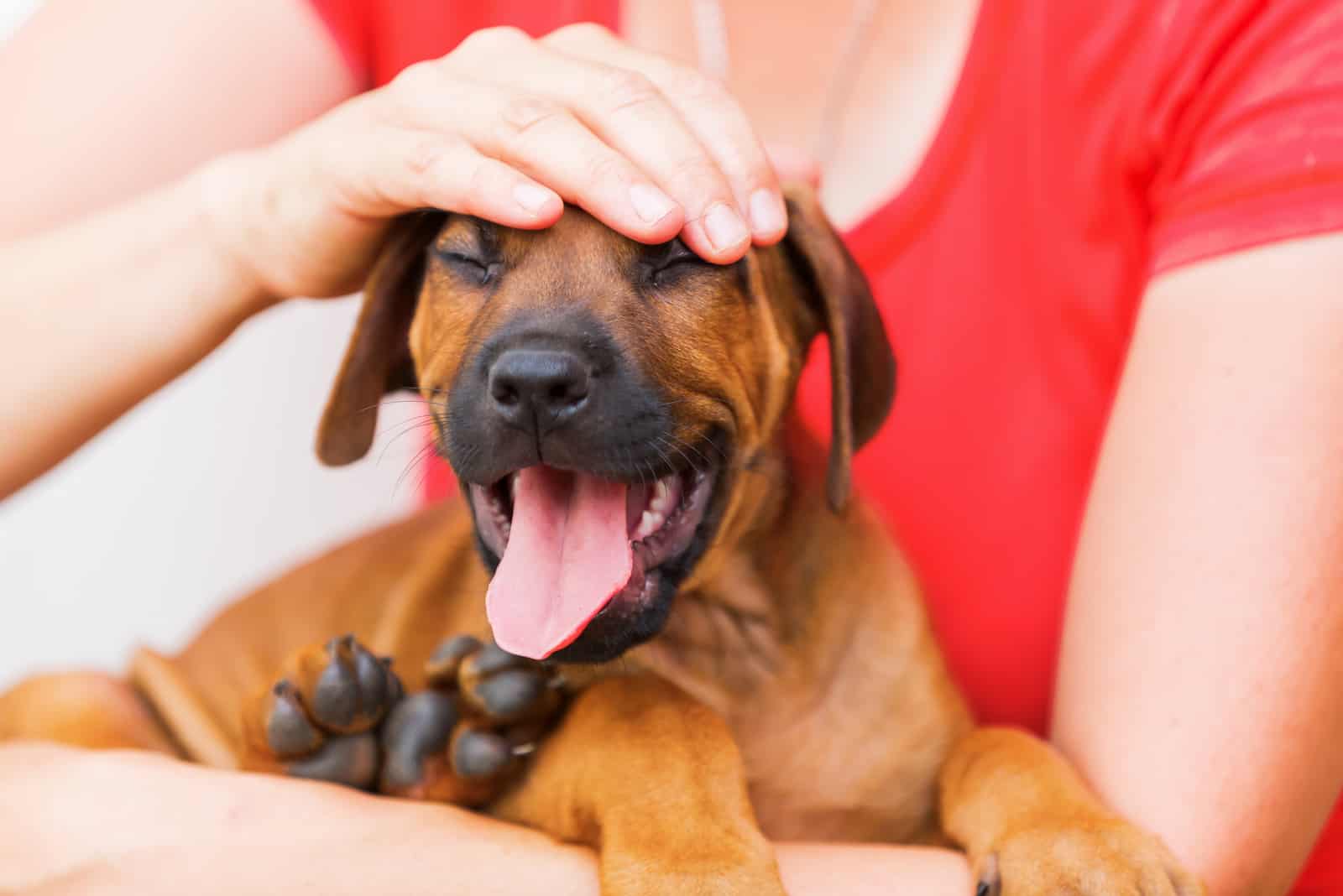Being a pet parent is one of the best things ever. You get to enjoy the love and companionship of your furry friend. You laugh at their crazy antics and relax with them as you snuggle on the sofa. They are a joy to care for, and they enrich your life in many ways.
However, you also bear the responsibility of looking after their health. This can be an anxious and worrying time, as you can’t bear to think of them suffering, and you just want to make them better.
One of the best ways to ensure that your canine buddy gets the right treatment as soon as possible is by learning what to look out for. If you know the warning signs, you can take action and get your dog the help it needs.
Today, we’re going to help people who are saying, my dog won’t stop sneezing!
Sneezing, as you know, is a natural process, a reflex action in response to something that has irritated our nose.
While the odd sneeze here and there is never a cause for alarm, and it can even be cute as well as funny. Some of our canine pals even play sneeze, which you may have seen when playtime gets a bit energetic. However, it’s another matter your dog sneezes non-stop. This could be an indication that there’s something wrong.
So, without further delay, let’s look at the common causes and what you can do to help.
Why Is My Dog Sneezing So Much All Of A Sudden? It Could Be An Allergy!
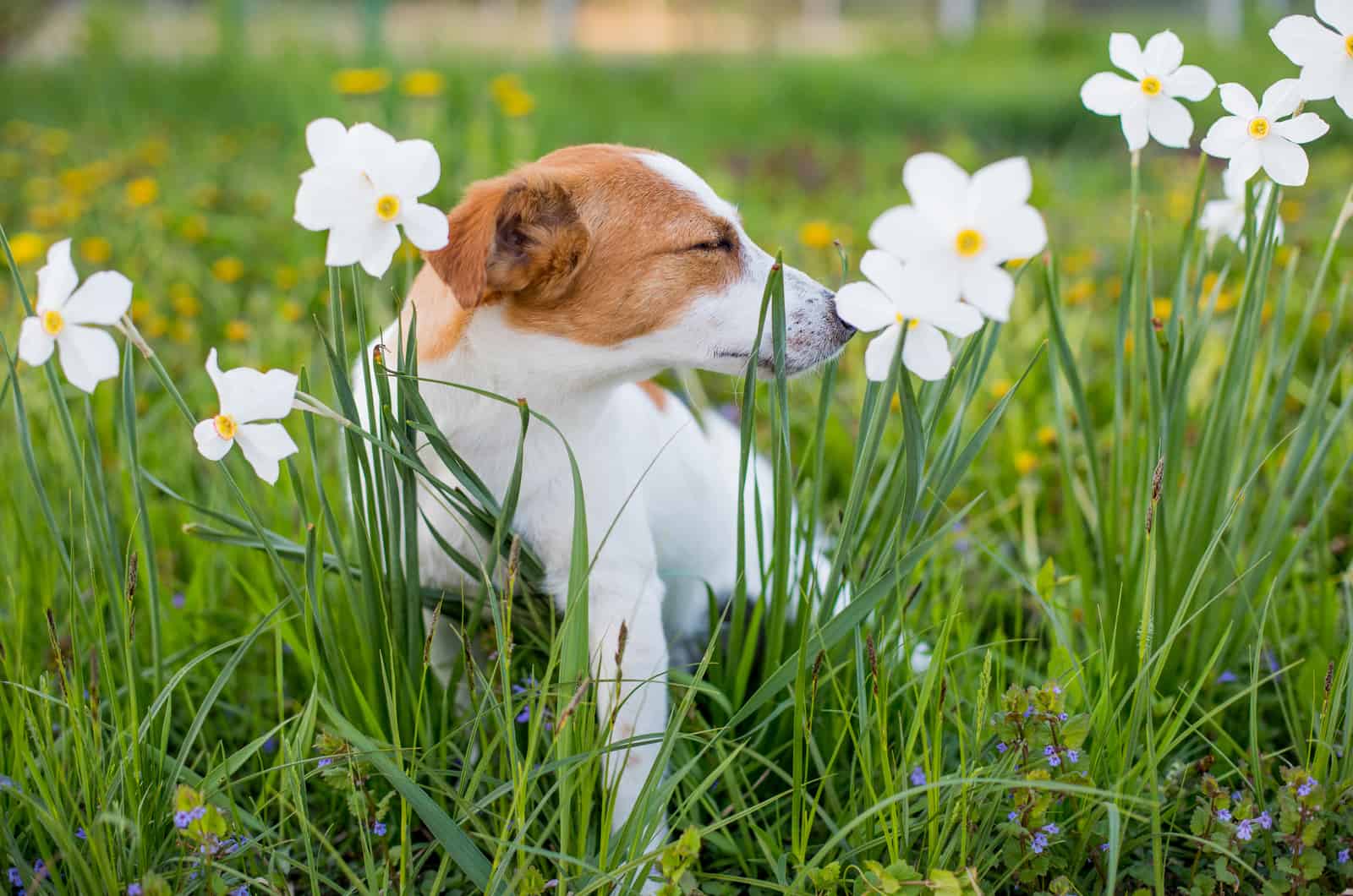
Dogs usually react differently than humans when it comes to allergic reactions. Allergens often affect a dog’s skin or digestive system rather than the sinuses. The most common reaction is dry, red, itchy skin, either in a localized patch but sometimes right across the body. An allergic reaction to food will result in an upset stomach.
Even so, dogs will sometimes sneeze continuously when they encounter environmental allergens such as pollen, dust mites, small particles of dust, mold spores, mildew, and dander.
Each allergen is a protein, either in food or in the air, that enters the body. The dog’s immune system mistakes these for harmful germs and overreacts, producing histamine. This sends signals to the mucus membrane to increase production, giving the dog a runny nose.
Histamine also tells the brain to sneeze in order to expel the irritant from the dog’s nose.
If you’re one of the people saying, My dog won’t stop sneezing! it could be that your pooch has an allergy. To confirm this, you should check for other symptoms aside from sneezing, such as watery eyes and runny nose, as well as red, itchy patches on the skin. They might paw at their nose too.
How can you help?
It would be impossible to avoid or eliminate all airborne or environmental allergies, but try to limit contact as much as possible. Invest in a good-quality vacuum cleaner that filters out dust and dust mites. Get your local veterinarian to examine your furry pal to confirm the diagnosis and prescribe allergy medication such as antihistamines or corticosteroids.
My Dog Won’t Stop Sneezing! Are They Brachycephalic?
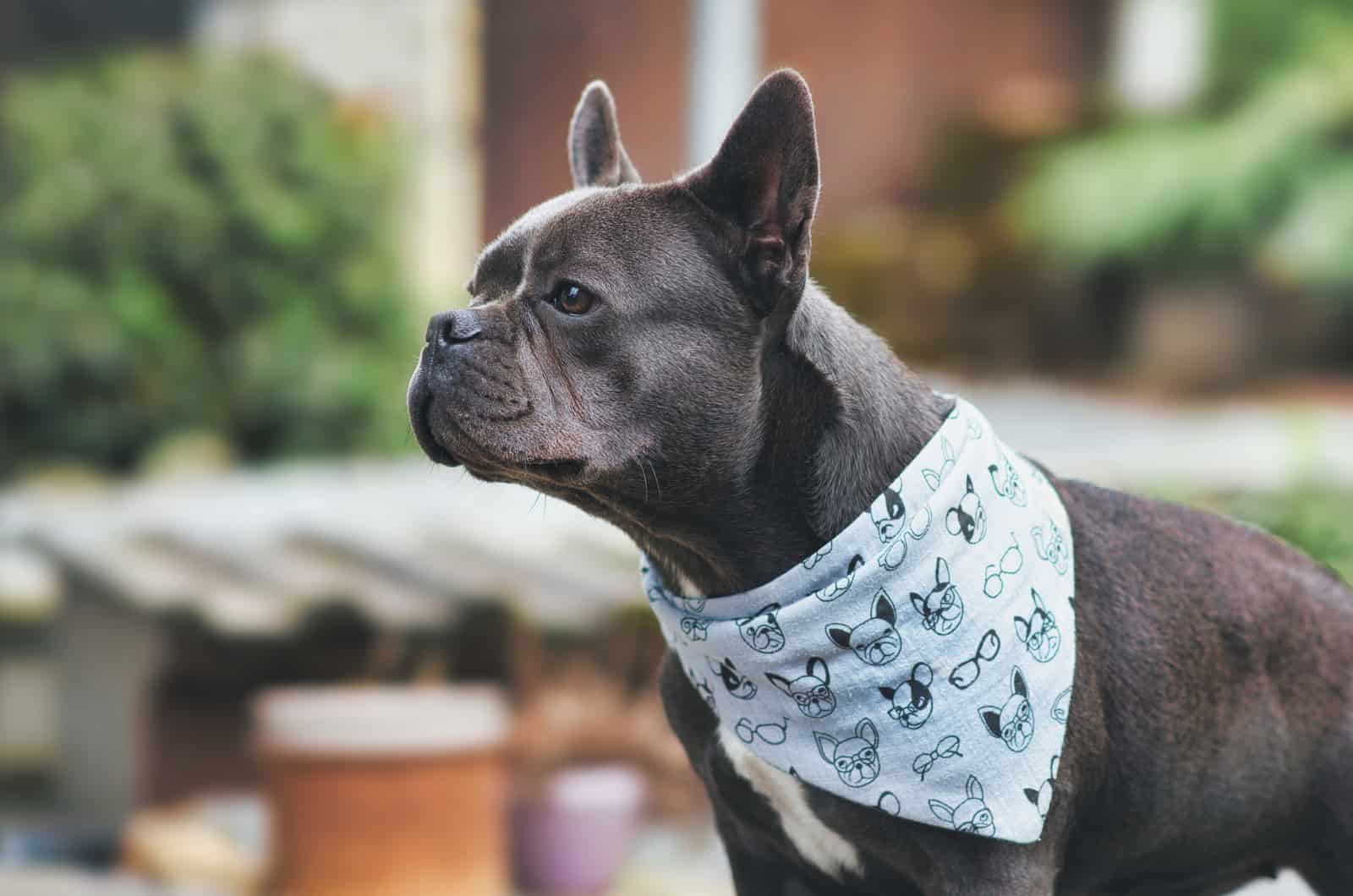
Brachycephalic dogs have flat, squashed faces, short noses, and large, bulging eyes. There are around 24 different brachycephalic breeds, including the Pug, the Boston Terrier, the French Bulldog, the English Bulldog, and the Pekingese.
These breeds have been developed over many years to display certain features, and dog lovers worldwide fell in love with them.
However, there’s a serious downside to these distinctive looks. Their nasal passages are restricted because they lack the long snout that dogs have naturally. Selective breeding has given them a short snout (brachycephalic means ‘short-head’), but the amount of soft tissue effectively remains the same, and this is crammed into the dog’s skull.
Because of this, these dogs often experience breathing difficulties. They also overheat easily as they lack the long snout that acts as a canine cooling system.
One result of the brachycephalic dog’s squashed-up face is reverse sneezing.
If you own a Pug, a Bulldog, or a similar breed, you might have heard this sound. It can be a shock when you first encounter this, as you might think that your pooch is choking or has turned into a goose!
But what exactly is a reverse sneeze? This happens when something irritates a dog’s nose or throat (usually the soft palate), causing it to spasm. The dog extends its neck and tries to breathe in, but because the trachea (windpipe) is narrow, it can’t take a full breath.
This causes the dog to breathe in hard through its nose, resulting in a strange snort or honking sound. This might happen a few times, perhaps for a few seconds or even longer.
It isn’t generally anything to be alarmed about if it only happens once in a while, but if it occurs regularly and your dog is distressed, then you should get the local vet to check them over. When brachycephalic dogs get too hot or overexert themselves, they can suffer from brachycephalic airway obstructive syndrome (BAOS), which can be distressing and, in some cases, fatal.
Although many brachycephalic dogs (especially toy breeds and terriers) are more prone to reverse sneezing because they have an elongated soft palate, it can affect any breed.
We’ll look further into the possible causes in the next section as we continue to find ways to help concerned dog owners saying, my dog won’t stop sneezing.
My Dog Won’t Stop Reverse Sneezing.
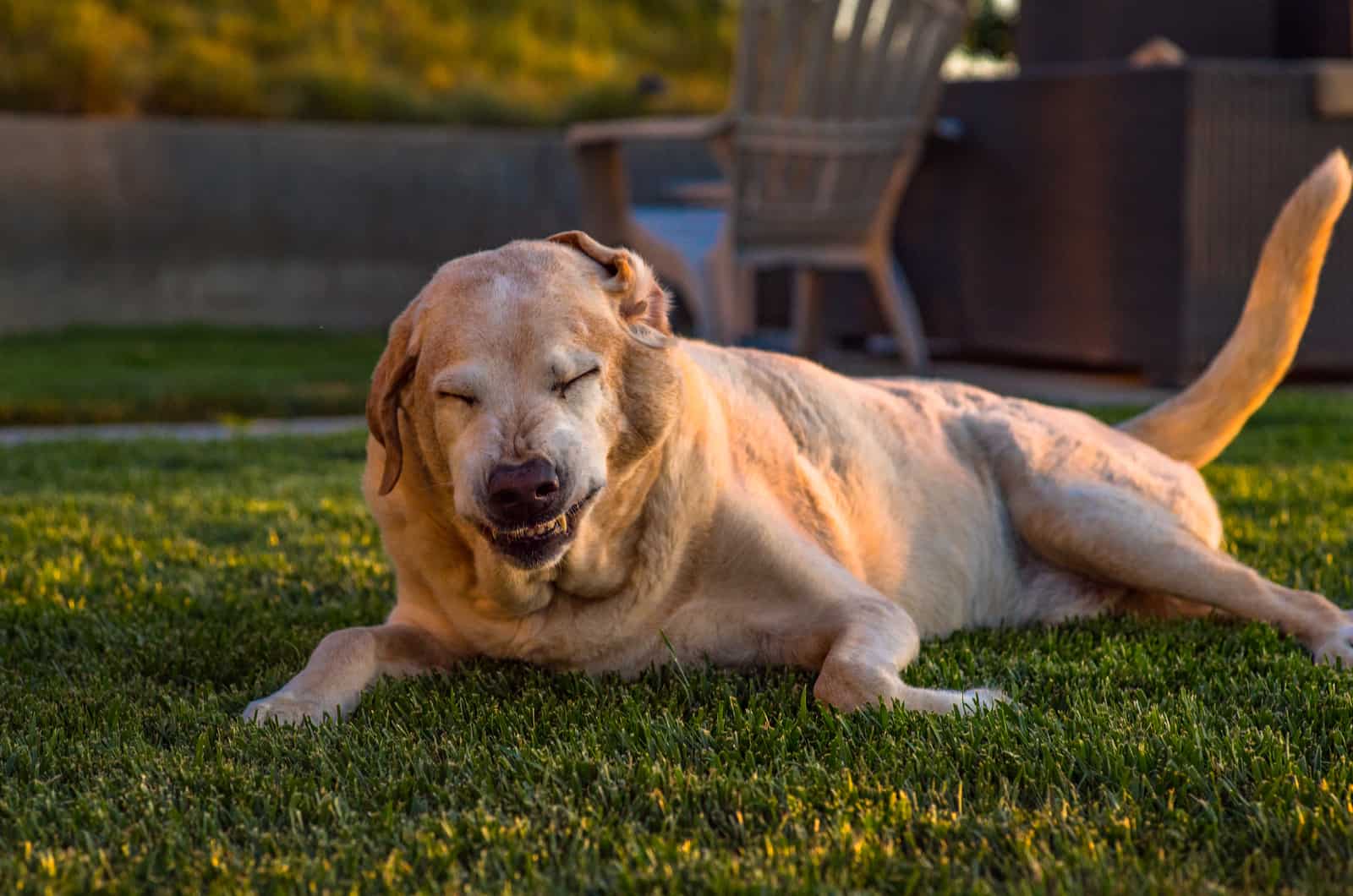
We’ve seen that dogs with short snouts and flat faces are more likely to reverse sneeze (also known as backward sneezing), but we now need to look at what triggers this in other breeds.
The root cause is the same: an irritation of the soft palate. However, several different things can do this:
Nasal mites.
This condition is rarely diagnosed despite being very common. Dogs usually pass this to each other when they touch nose to nose. They can also get these mites from digging in the dirt.
The microscopic mites live in the nasal cavity, where they feed off the keratin layer of the skin on the dog’s nose.
Although it isn’t usually serious, if your dog has a severe case of nasal mites, it will sneeze, reverse sneeze, experience nosebleeds, and have chronic nasal discharge.
Your vet will take a nasal swab and check for mites under a microscope. They may also perform a rhinoscopy (a camera is passed into the nasal cavity while the dog is under light anesthetic), take blood samples for testing, and flush out the cavity to give a proper diagnosis.
Fortunately, this condition is easily treated with medication.
So, if you’re thinking, Help! My dog won’t stop sneezing! it could be that it has nasal mites.
Allergies.
We mentioned allergies above, but not that they can sometimes cause reverse sneezing. It’s a different sound than normal sneezing, so you should be able to tell the difference. Again, it isn’t usually a serious issue, but you need to understand what’s going on so you can make the right decisions and seek veterinary care for your dog if necessary.
Exposure to household products.
Think about the stuff that you spray, pour, and wipe around your home – air fresheners, perfumes, polish, cleaning fluids, antiperspirant deodorants, and so on.
Your dog’s nose is thousands of times more sensitive and powerful than your own, and it takes in all of these scents. Some will be overwhelming, making the dog sneeze or even reverse sneeze.
Take care to ensure that your dog avoids inhaling these irritants as far as possible. It shouldn’t harm them in small doses, but it’s best to limit exposure as it isn’t much fun for your dog.
Also, any sneezing or reverse sneezing episode caused by inhaling household products shouldn’t last very long. If it continues for more than a few minutes and happens frequently, then you should look for a different cause.
Foreign objects.
Dogs explore with their noses. They love to stick their snouts right in and give everything a good sniff. And this sometimes leads to objects (or foreign bodies) getting lodged in the nasal cavity.
When you take your dog out into parks or the country, they’ll bound off into the undergrowth, where they come into contact with all sorts of hazards. Many plants have developed clever ways of distributing seeds via passing animals, your canine companion included.
Foxtail burrs are a common culprit, as they are barbed. These pesky seeds get stuck in all kinds of places, including the dog’s nose. Grass seeds are another of the usual suspects, and sometimes it might just be a single blade of grass lodged up there.
Whether it’s seeds, grass, or even a morsel of food, these foreign objects cause irritation, and your dog will try to get rid of it by sneezing violently and even reverse sneezing.
This could be accompanied by nosebleeds, and your dog will keep pawing at its snout.
If you suspect that your dog has something stuck in its nasal cavity, it’s best to consult your vet. It’s one thing if you can see the object clearly and can safely remove it, but if it’s lodged further back, then you should leave it to the experts.
Pulling hard on the leash.
If your pooch wears a collar and pulls continually against the leash, then it might trigger reverse sneezing as the collar will dig into the throat area and aggravate the soft palate.
This can be overcome through training to stop your dog from pulling ahead and by using a harness instead of a leash and collar.
Eating and drinking.
Our animal companions love their food. Sometimes they scoff their food or hit their water bowl just a little too hard, resulting in pieces of food or drops of water entering their nasal cavity. They’ll sneeze or reverse sneeze to get rid of it. But this should be a fairly quick process, only lasting a couple of minutes.
Now that we’ve covered the causes of reverse sneezing in some detail, we’ll focus on excessive sneezing (the usual kind, not backward!).
My Dog Won’t Stop Sneezing And Wheezing: Respiratory Infections.
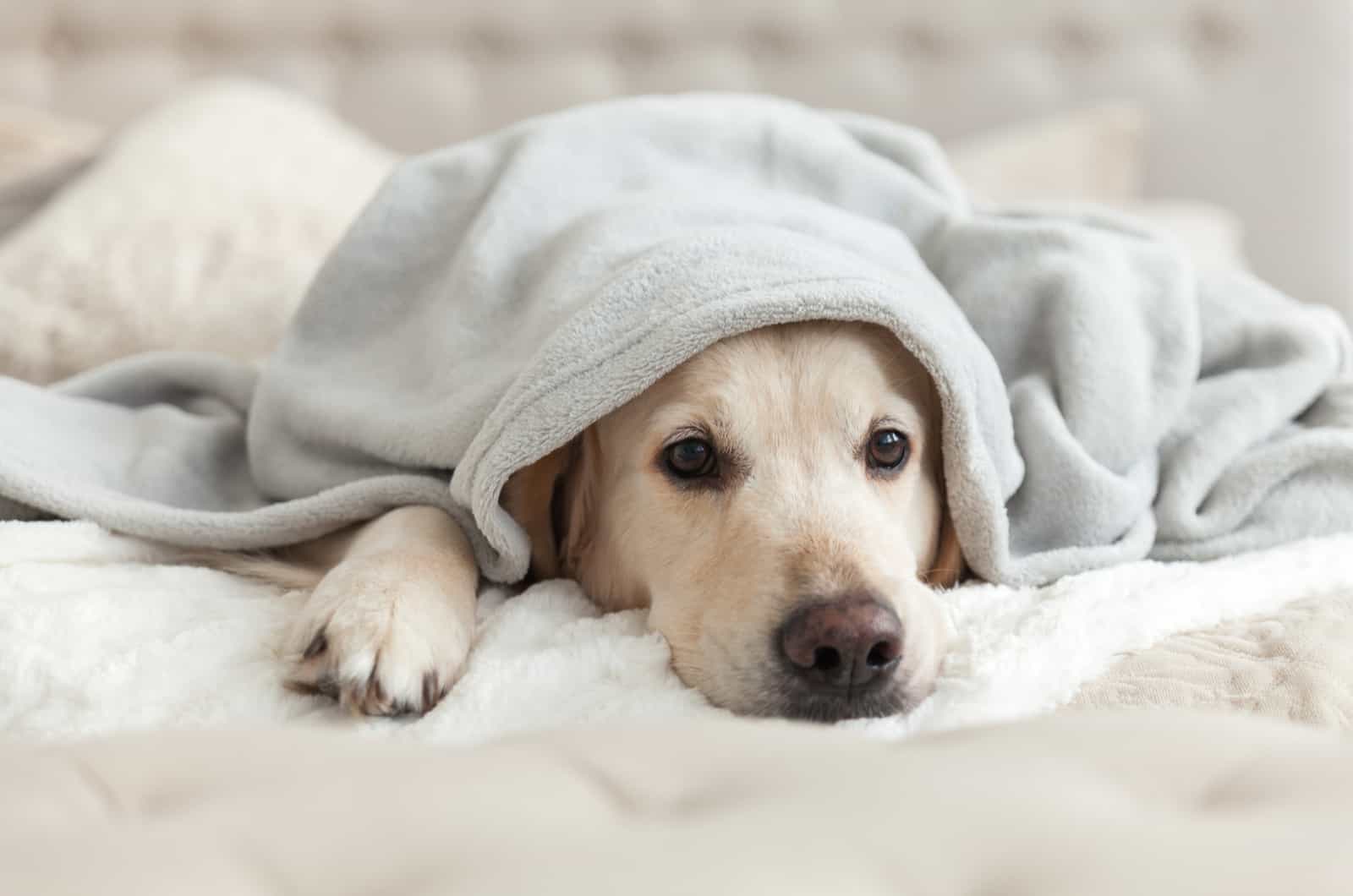
Just like humans, dogs can pick up infections from other dogs. One of the most common respiratory infections is kennel cough.
Although it has one name, it is caused by a group of different bacteria or viruses. The symptoms are similar, and the effect is the same: you have a poorly pooch that coughs, sneezes, and has a runny nose.
This condition is passed on easily, often by dogs touching noses in greeting. It is common in places where dogs gather in large numbers, such as the dog park, dog training sessions, dog shows, or boarding kennels (which is where the name comes from).
The good news is that even though it is highly contagious, it is rarely a serious problem. But it’s still not much fun to see your best friend looking so sorry for itself. If your dog is young and otherwise fit and healthy, it should pass within a week or two, without any need for medical treatment. In older dogs or those with other health conditions, it might hang around for about six weeks before it goes away on its own.
Still, it’s best to keep a close eye on your furry pal just to make sure that things don’t get worse. Your vet may prescribe antibiotics to reduce the risk of secondary infections. Pups are particularly prone to this as their immune systems aren’t fully developed, and they can contract pneumonia.
One way you can help your dog is by making sure they drink plenty of fresh water, as this will flush the toxins out of their body and rid them of the sickness much quicker.
My dog won’t stop sneezing! Then they might have kennel cough!
My Dog Won’t Stop Sneezing! What Do I Do?
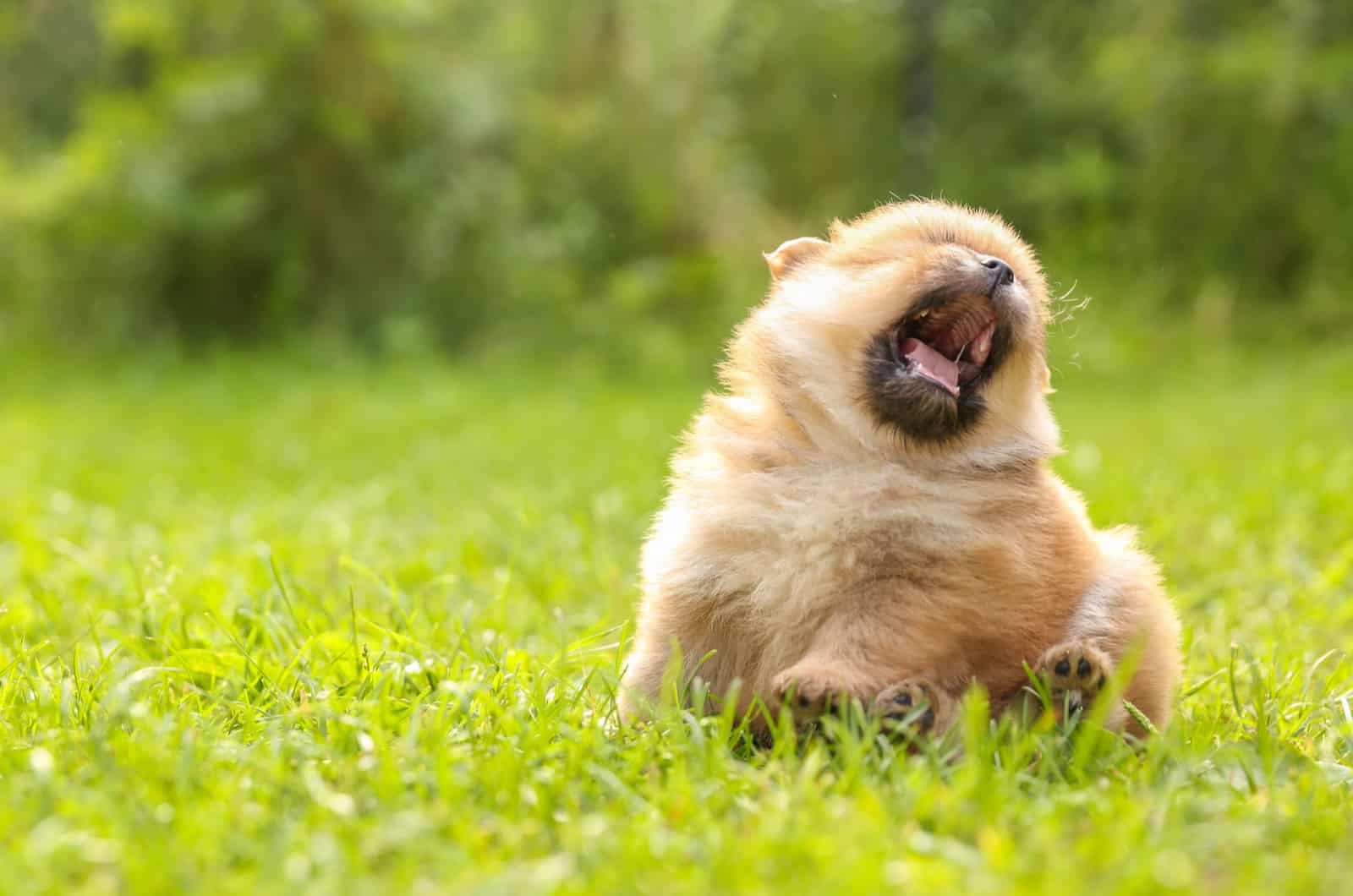
As responsible dog owners, pet health is a priority, even though it means that we have to consider the unthinkable: the possibility that our beloved pooch may get a serious illness.
Dogs that are around 7 years or older are more at risk of tumors, and sometimes these are found in the nasal cavity. This could be the cause of Fido’s sneezing, pawing at his muzzle, or constant bleeding from his nose.
Nasal tumors aren’t common, making up only between 1–2% of all canine cancers, but 80% of them are malignant.
Sadly, the prognosis for dogs with nasal tumors is poor, usually between two or three months after diagnosis.
The symptoms, aside from continuous sneezing, are:
• Weightloss
• Lethargy
• Noisy, labored breathing
• Coughing
• Nasal discharge, sometimes with blood
If your beloved pet is showing any of these symptoms, it’s essential that you get them to a pet care specialist immediately. Hopefully, it will be a happier outcome, and they’ll diagnose one of the less serious conditions above. If not, you need to follow the vet’s advice and do what is best for your furry friend.
My dog won’t stop sneezing! Then, sadly, it may have a nasal tumor.
Read Also: 15 Home Remedies For Sneezing Dog — No More Dog Bless You
In Summary.
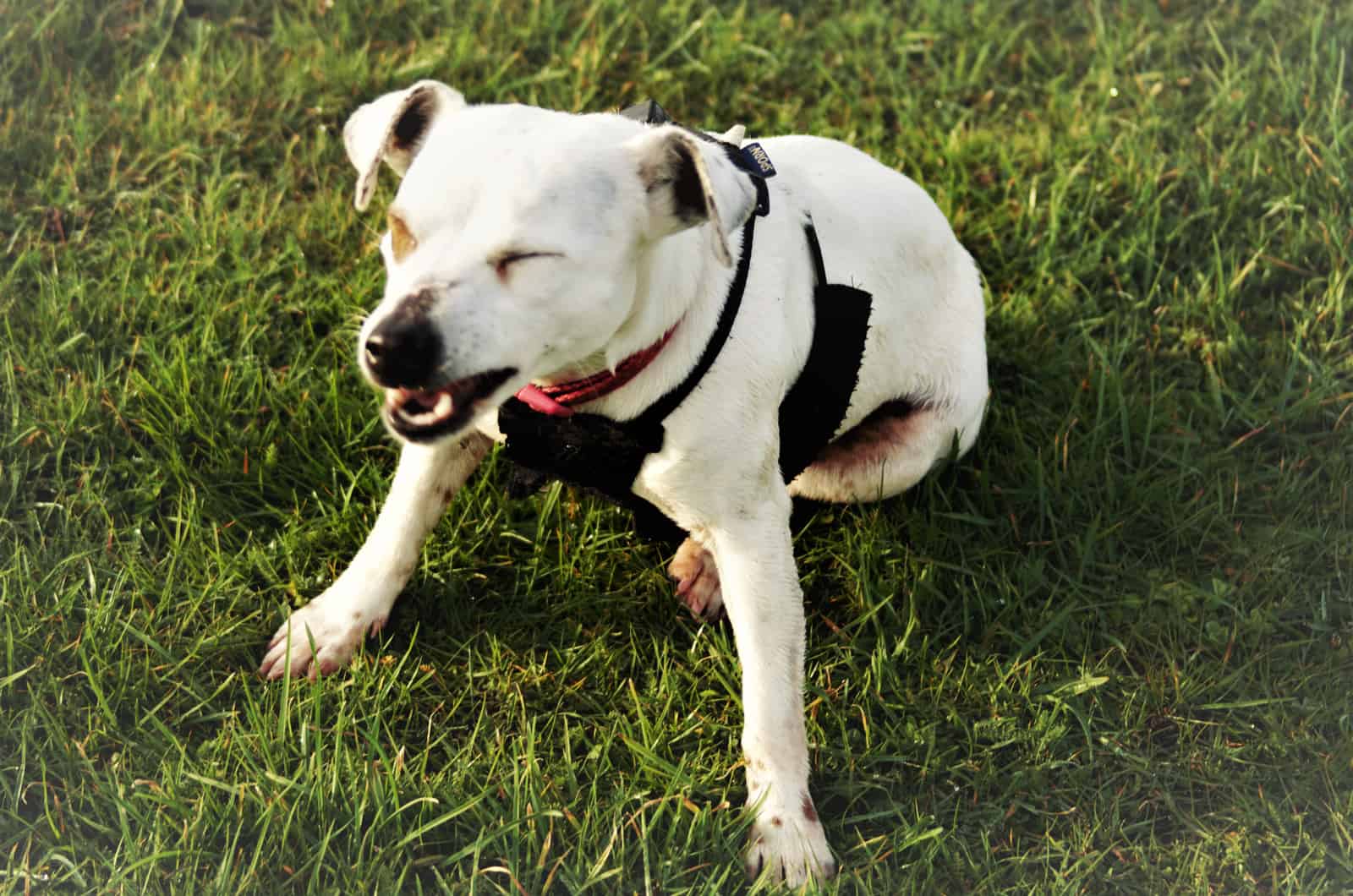
Photo from: @2naturaldogs
It may be a grass seed or foxtail burr, and they’ll probably succeed. If not, you could try to remove it, or failing this, you’ll need to visit the vet.
Allergies and respiratory infections are a common cause of sneezing. Again, your vet will advise you and may even prescribe medication to ease the condition.
Reverse sneezing can be alarming if you’re not used to it, but it rarely indicates anything serious. The exception is if your dog is brachycephalic and the reverse sneezing continues for longer than usual and your furry pal seems to be in distress and/or struggling to breathe. If so, it’s vital that you recognize the signs and contact your vet immediately.
Finally, we looked at the possibility of nasal tumors, which, although rare, has to be considered.
The key to all of these is the words my dog won’t stop sneezing. A sneezing fit that lasts for a minute or so isn’t anything to be concerned about. But when it goes on for several minutes and is repeated often, then you need to check for other symptoms.
Being a pet parent can be a challenge at times. Along with all the cuddles, playtime, and fun, we have to deal with the yelps of pain and sickness. We get gray hairs worrying about our beloved furballs. But the rewards make it totally worth it, right?

